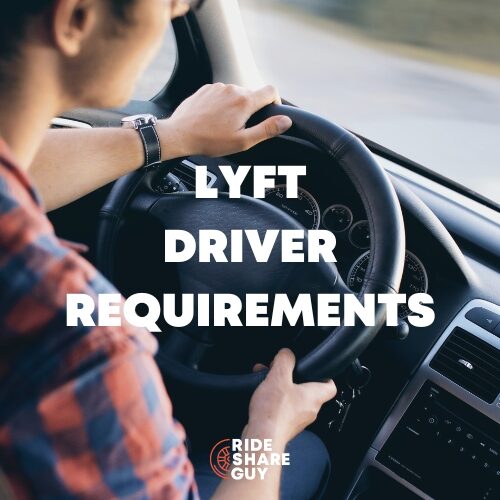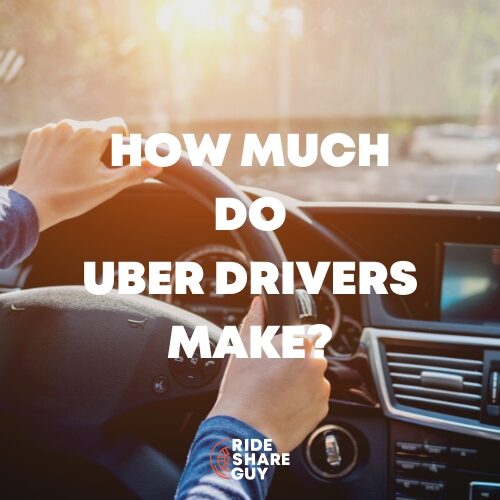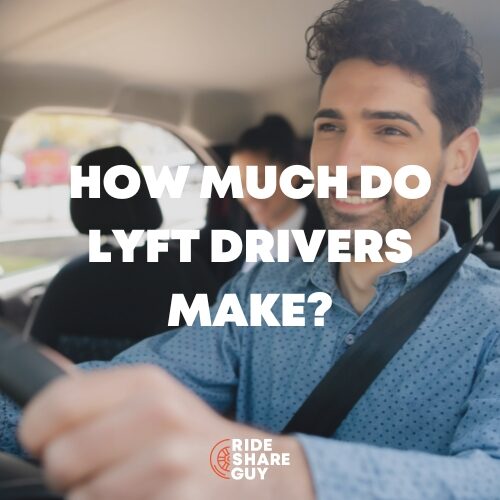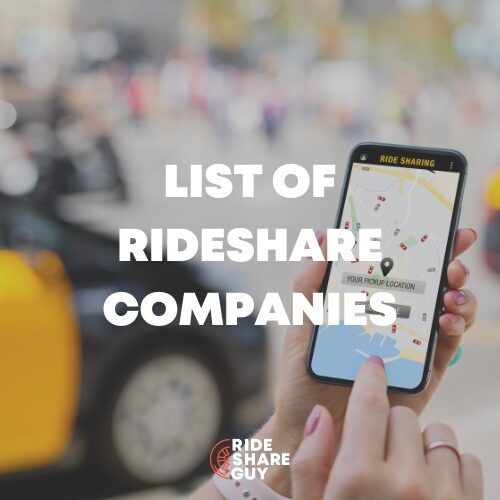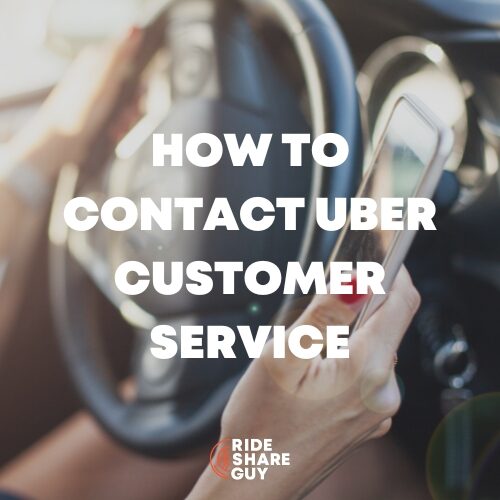Recently, RSG reader Josie sent us an alert about Uber removing the driver referral program from her market in Denver. We put out a call on social media wondering if other drivers had seen the same thing, and you responded in droves! Senior RSG contributor Jay Cradeur investigated which cities have lost their driver referral program, what drivers are saying about it, and how this could impact drivers’ earnings.
Say what? Yes, effective September 18, 2019, Uber is canceling its driver referral program in multiple markets across the country. Several RSG readers have informed us of their experiences receiving notifications from Uber notifying them that the referral program has been canceled – but find out why most drivers have been supportive of this new policy. Let’s dive into the meat of this surprising new Uber policy and what it will mean for drivers.
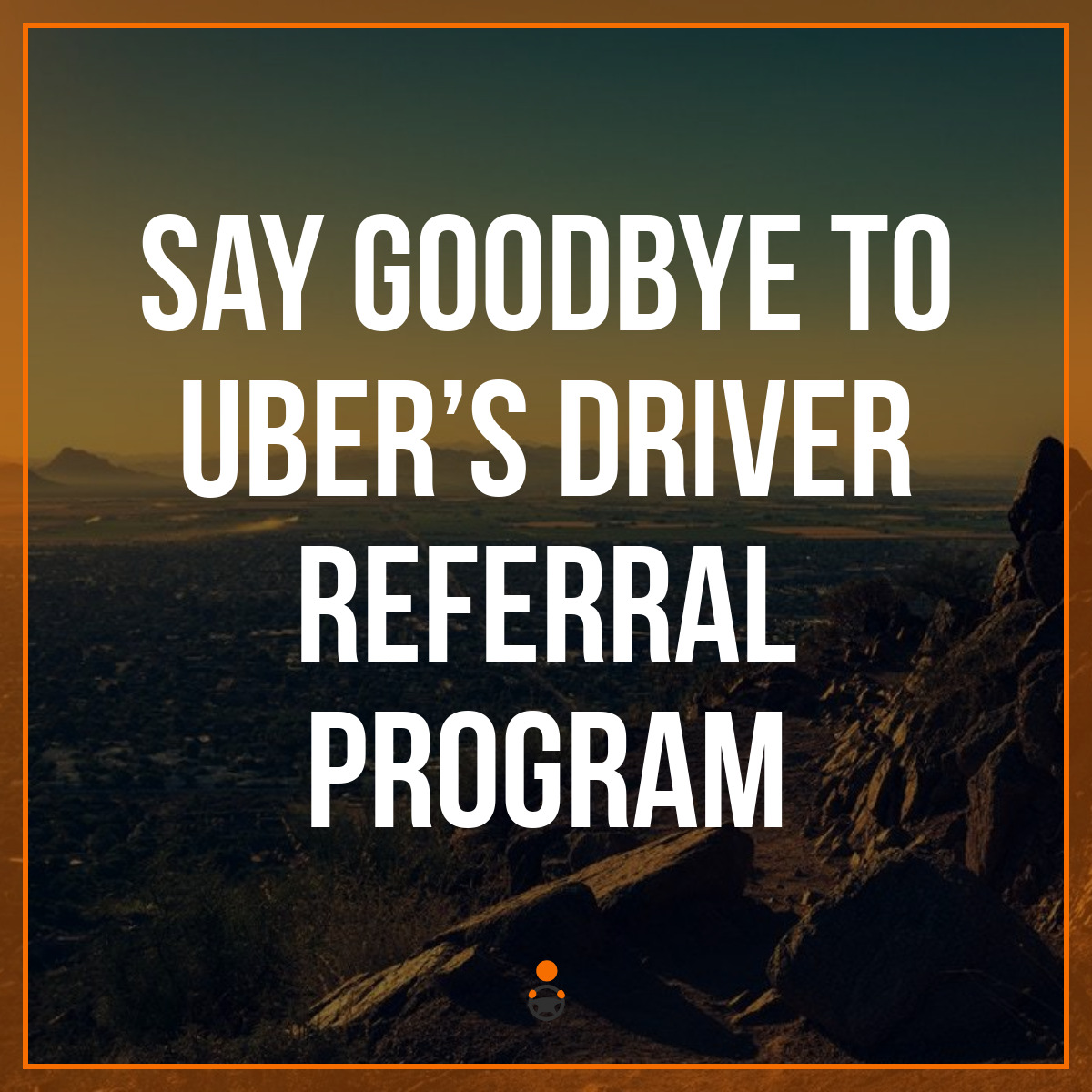
What Is Uber’s Referral Program?
Since I started driving for Uber back in December 2015, the company has always had a new driver referral program. If I, as an active driver, refer another person to become a new driver for Uber, and that person completes a certain number of rides, I would earn a bonus. Here is the current offer in San Francisco for new drivers:
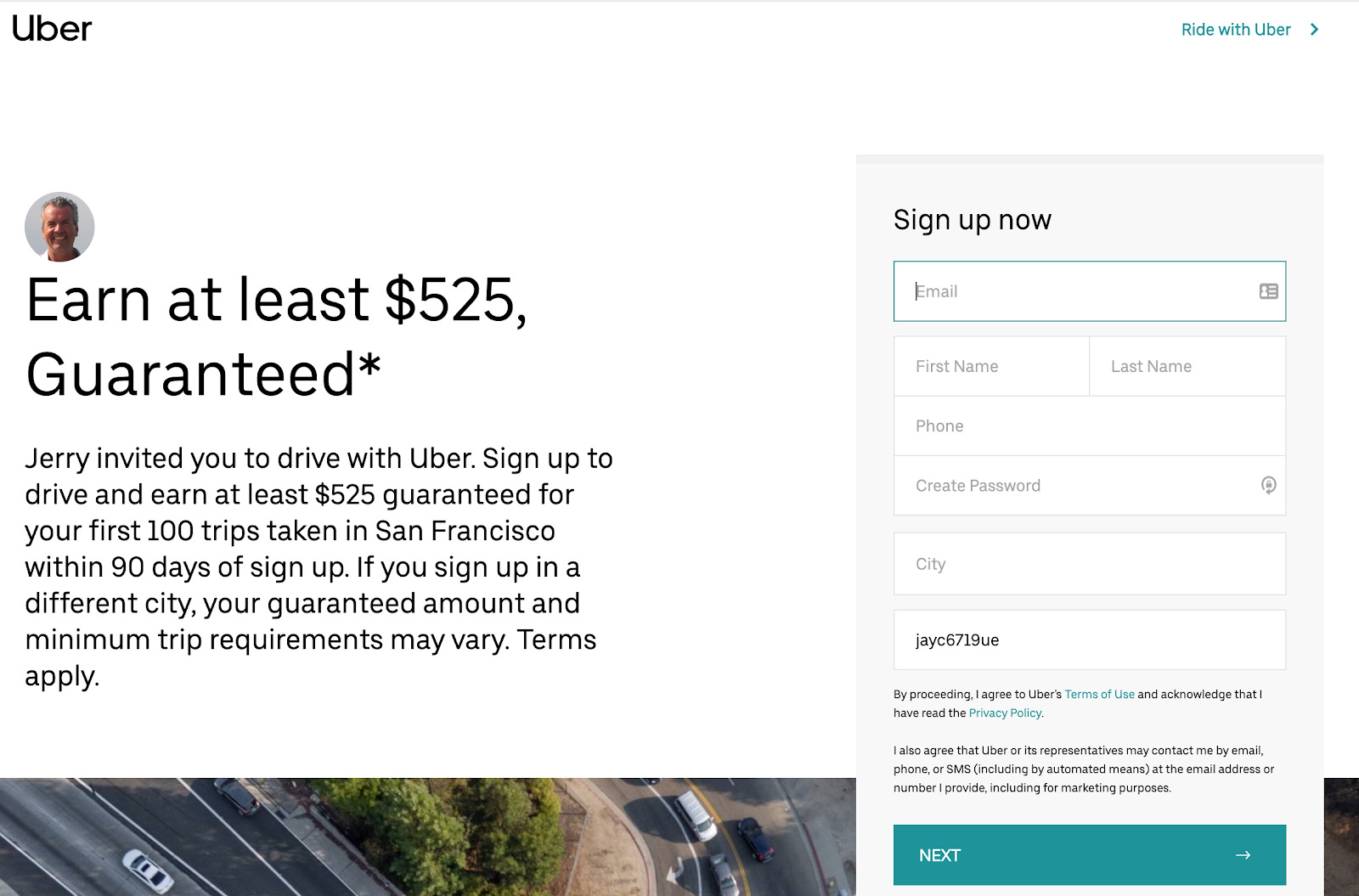
Now once a driver completes the required number of rides, in this case 100 rides, I earn a bonus. The amounts vary depending on where the driver is located. According to Uber, as of today, I can earn up to $1,000 for referring a new driver but the company does not specify which markets will pay me the premium bonus.
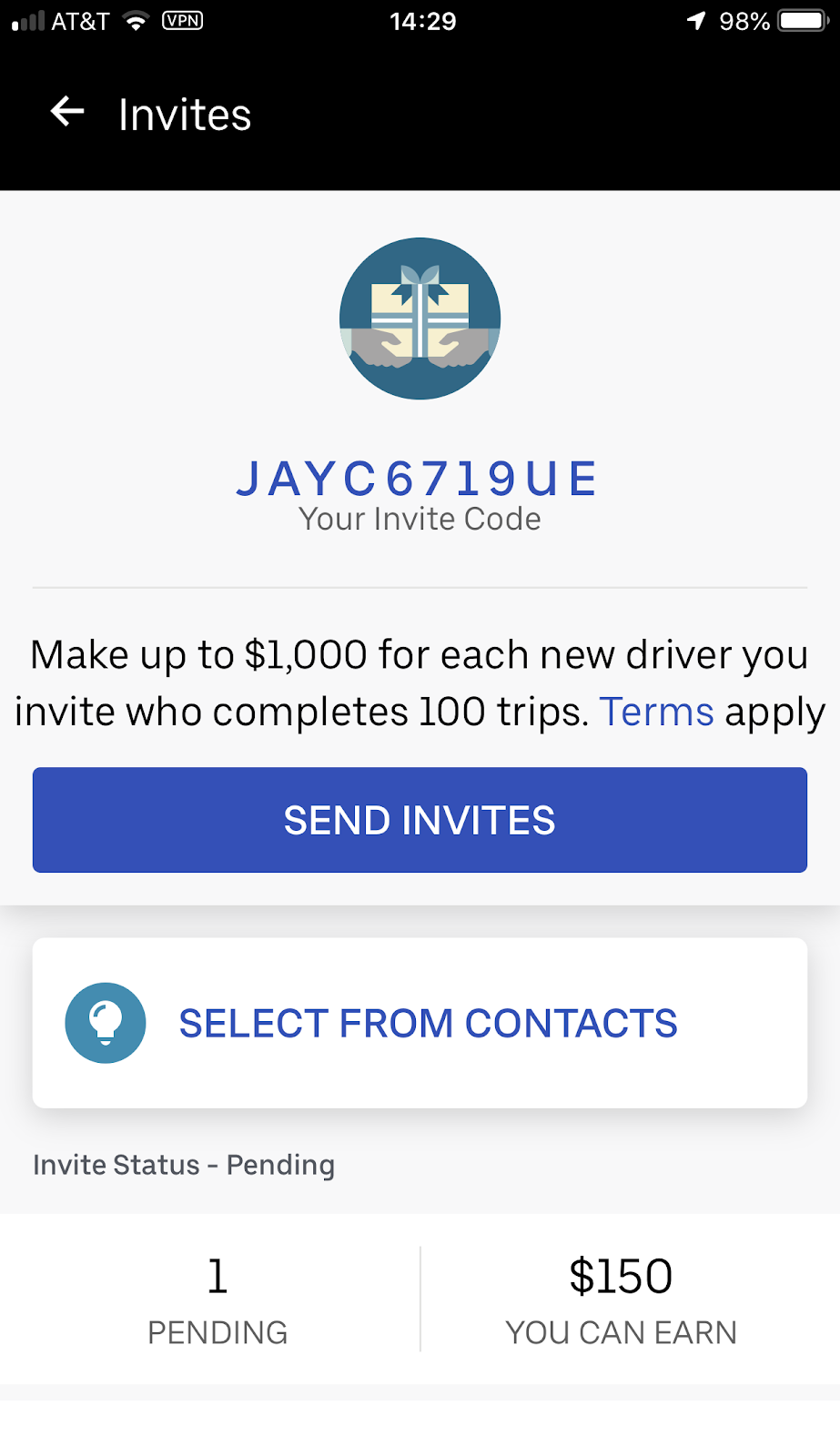
I have referred a number of drivers over the past three years and while it hasn’t made me rich, it’s been a nice bonus here and there for helping out new drivers. The referral program is part of a strategy used by both Uber and Lyft to incentivize drivers like me to promote rideshare driving in order to earn a bonus. It benefits Uber and Lyft by providing a constant stream of new drivers and it’s also one of the ways this site makes money.
(Harry: For full disclosure, about 16% of the site’s total revenue in 2019 comes from driver sign-up bonuses.)
Does Uber Still Have A Referral Program?
The answer to that question is “Yes” and “No.” Some markets seem to have been discontinued, while others, such as San Francisco and Los Angeles, seem to still be online with the program. Here is what we have seen on our Facebook Page:
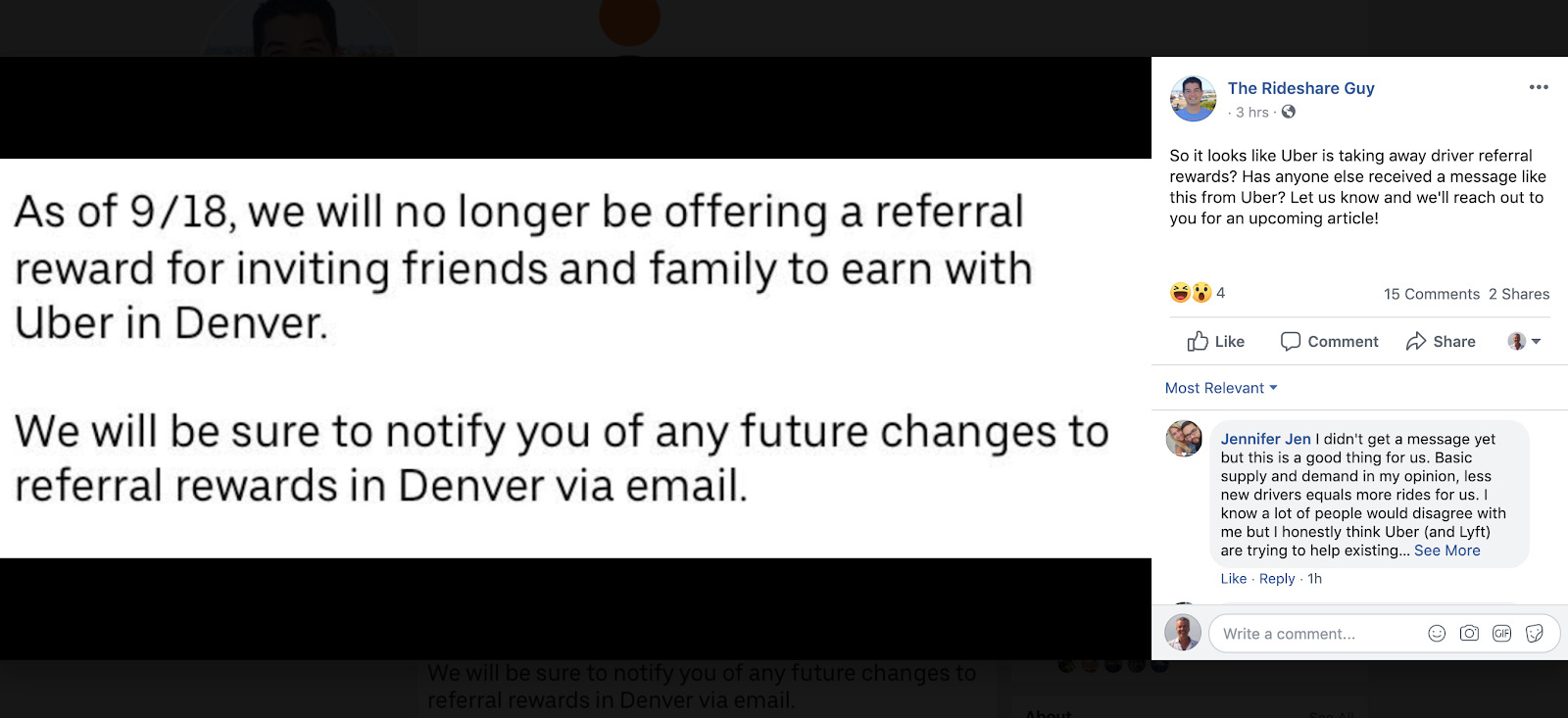
From this screenshot, we can see that Uber is definitely not offering a referral program in Denver. We can see from the comments below this post that many other markets are impacted:
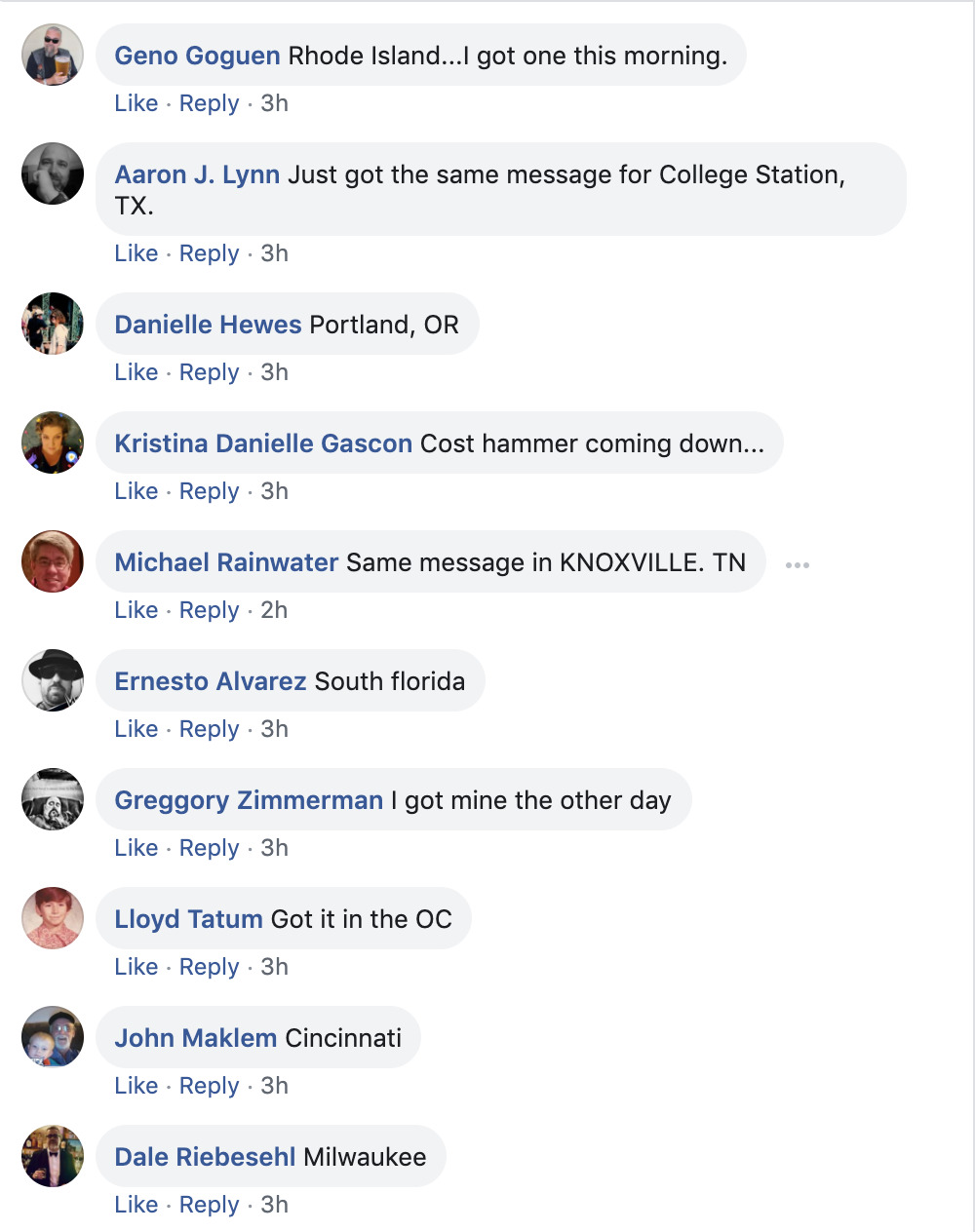
Wow! Rhode Island, Oregon, and Florida all have markets that will no longer honor the referral program. Even more readers chimed in on Twitter, including more drivers from New York, Florida and parts of California.
It appears drivers can still make some money by providing referral drivers, but only in markets in which the program is still active. For example, I can still get paid if I have a driver in San Francisco, but not in Denver or Miami. A driver’s opportunity to make money through referrals has been severely limited.
Here’s a list of all the markets that have been affected [let us know if your market is affected and not listed!]
- Rhode Island
- College Station, TX
- Midland-Odessa, TX
- Portland, OR
- Knoxville, TN
- Denver
- South Florida
- Orange County, California
- Milwaukee
- Cincinnati
- Miami
- Upstate NY
- Phoenix, AZ
- Boise, ID
- Fort Myers-Naples, FL
- Columbus, OH
We reached out to Uber for more info but they could not provide any details or a comment.
What Do Drivers Think Of This?
On the one hand, many drivers will not like this new policy because it is taking away one additional source of revenue. While nobody was getting rich on referral fees, it was always a nice little boost to get that extra $200 or sometimes $1,000 added to your bank account.
However, most drivers appear to feel this discontinuation of the new driver referral program is good news for existing drivers. The thinking is that since there are no longer any financial incentives, drivers will not be referring new drivers, therefore there will be fewer drivers on the road. This would increase demand for the current crop of drivers.
I agree with this assessment and would welcome an end of referral fees in San Francisco. I could certainly make more money with less wait time between rides and more Surge and Personal Power Zone activity than I could make getting a few drivers to actually drive the required number of rides to score a bonus. I am not alone:
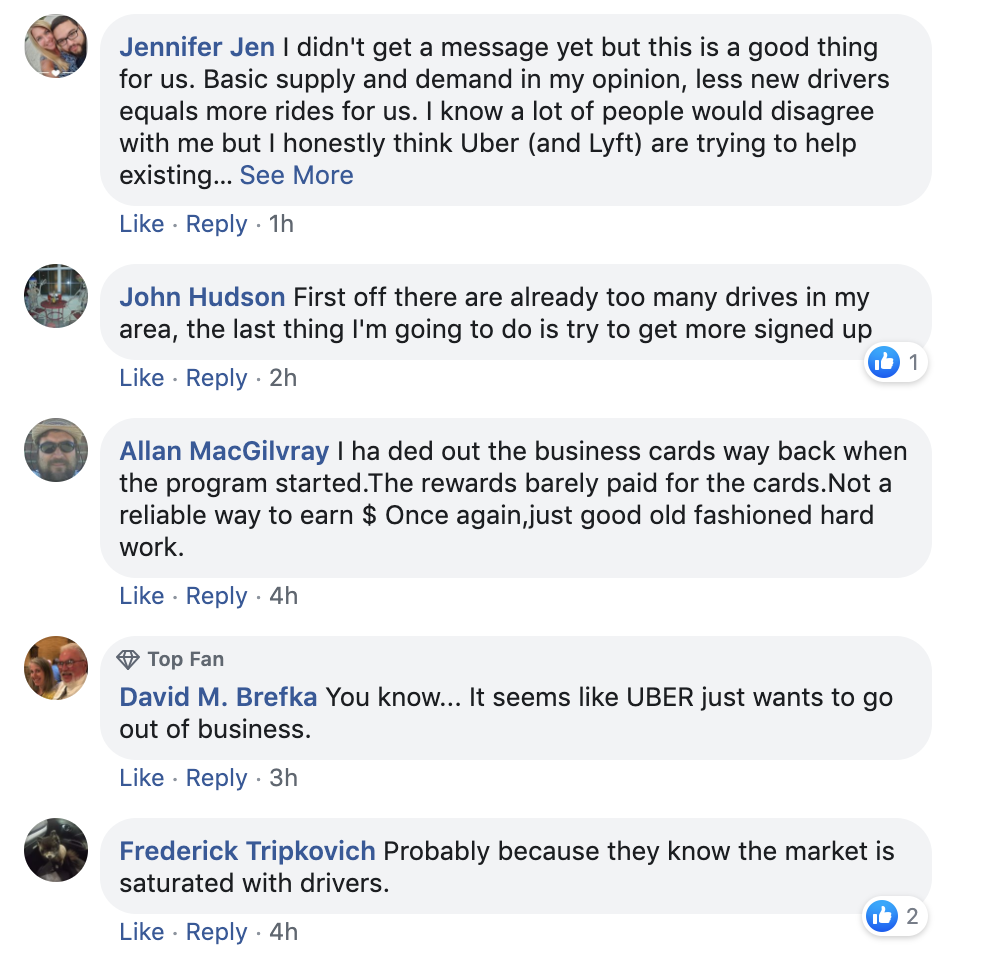
Based on these comments, Uber will not face any significant backlash for removing the referral programs in markets across the country. I think our reader John really hits the nail on the head when he writes:
“First off there are already too many drivers in my area, the last thing I’m going to do is try to get more signed up.”
Why Did Uber Do It?
All of this begs the question, why did Uber suddenly decide to kill the referral program in so many markets? I believe it comes down to the bottom line. Now that Uber is a publicly-traded company, there is more of a demand for profitability. I am sure that the markets that are impacted by this new policy are markets that have plenty of drivers. Why should Uber spend money to entice new drivers when it is not necessary? I can imagine the corporate meeting now; the consultant says “Since we don’t need any more drivers in Denver, why don’t we stop spending money to attract more?”
No doubt, this will save Uber quite a bit of money and will not impact its service to customers in the least. This may be one of those situations in which Uber has devised a true win-win for themselves and drivers. Uber saves money. Drivers get quicker pickups and potentially more bonus money.
Key Takeaways
Uber is making a serious cost-cutting change in policy. The referral program many of us have come to love is being discontinued in many major markets across the country. You can still make some referral money but only in those markets not impacted by this change. Other companies like Lyft and Via are still offering guarantees and bonuses though to new drivers.
Most drivers like this change in policy. Fewer drivers mean shorter wait times and possibly more bonus opportunities. It appears to be a win-win. I have a hard time saying this, but I like what Uber is doing here. It’s time to thin the herd, reward those Uber Pro drivers and maybe, just maybe, enable drivers to earn more. Drive safe out there.
Readers, what do you think of the changes to Uber’s referral program?
-Jay @ RSG
